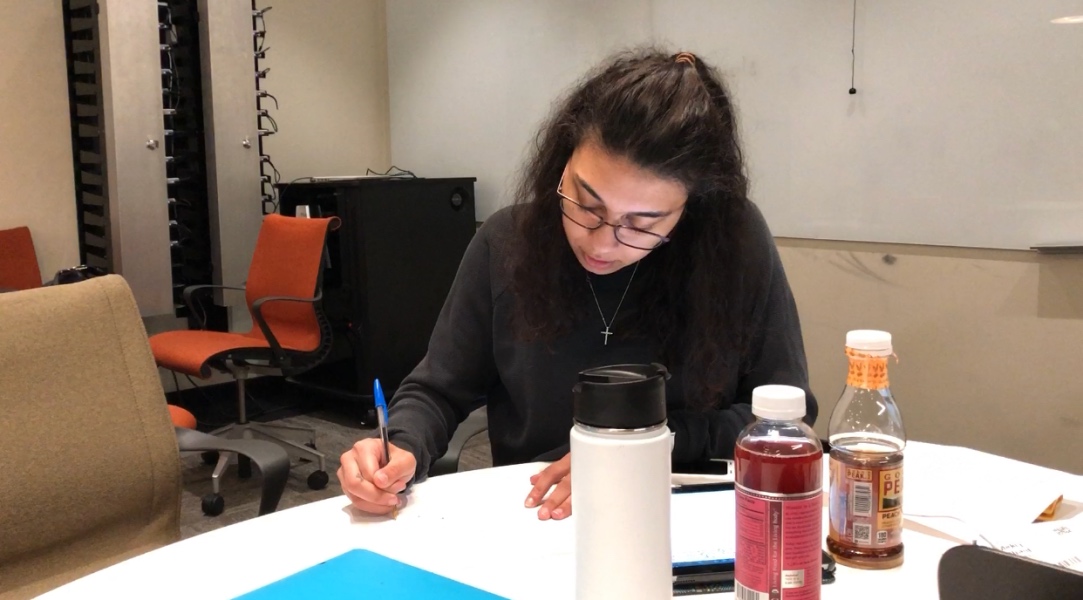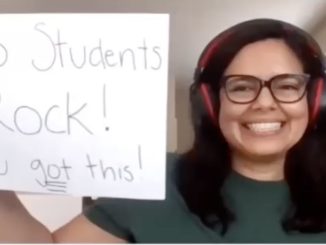
International students at Pepperdine are not the only ones who experience culture shock in the Malibu environment.
East Coast individuals find themselves astonished upon arrival to their California dream.
Four students from the East Coast said they faced stark cultural and lifestyle differences that proved to be a difficult transition. The mindset, transportation, lifestyle, and the way they were expected to communicate with their peers were all different from their East Coast habits.
“Pepperdine has a very relaxed pace,” said Jack Bracci, a senior economics major from New York City. “And the environment itself. Nature. It’s very quiet. New York City is very hectic and chaotic. Which you don’t really notice until you leave.”
Bracci is among other East Coast students who have experienced frequent revelations about their new environment upon moving to Malibu.
Understanding culture shock
LaRay M. Barna, an intercultural communication professor at Portland State University, defined culture shock in a July 1976 research paper as a multidimensional reaction to stimuli one experiences from a brash transition to a foreign or new environment. Culture shock creates an overall feeling of being unsettled.
“You can definitely see the differences of course between both groups, generally speaking of course,” Communication Professor Jennifer Phillips said.
The difference between the East Coast and Pepperdine’s environment on the West Coast includes different practices, historical knowledge and identity, Phillips said.
Melissa Falanga, a junior physics major from Massachusetts, said she was overwhelmed upon arrival.
“It was a lot of people at once, a lot of different mannerisms, walking down the sidewalk is different here than it is there,” Falanga said.
It took her two months to adjust to the Pepperdine culture, Falanga said.
She moved across the country after watching several others move from Massachusetts to California in what she described as a pipeline.
“Basically, a bunch of people start out in Mass, then they move to California for a bit,” Falanga said. “And then eventually, by the time they are 50, they end up back in Mass.”
The two coastal states have a history of switching residences, despite the different lifestyles, Falanga said
Tips on transitioning
Successfully transitioning to college is important for students’ health and success. Students experiencing culture shock to any degree have their bodies start defending themselves by tensing up when immersed in an environment with alien stimuli. This in turn induces emotional and physical exhaustion, Barna wrote.
A tip for students entering Pepperdine is to practice cultural humility, Phillips said.
“It forces you to look internally as well,” Phillips said. “Rather than otherizing other cultures and generalizing cultures. Cultural humility has you go deeper into your own culture and identity.”
This allows students to approach Malibu with an open mind and makes adapting smoother, Phillips said.
Universities aim to provide a welcoming and open environment. The goal should also be accepting differences as a strength and not expecting students to change to fit a certain mold, Phillips said.
“That is the beauty of university,” Phillips said. “That is the beauty of the classroom.”
Student submerge themselves in the Malibu mindset
Malibu has an optimistic feel to it, Pepperdine students said.
“I would say people from California are definitely more positive,” Falanga said.
The East Coast students did not say that their hometowns are negative, only that Pepperdine has an aura of happiness.
The positivity could tie into the slower-paced life that is lived in California, all four students said.
“I just feel like the pace is just a lot slower here, everyone is just more going with the flow. Which I like more,” said Caroline Wagner, junior integrated marketing communications major from Arlington, Virginia.
Rylee Travis, a junior liberal arts in education major, said she preferred the California vibe compared to her hometown of Ashland, Massachusetts.
“People here are a lot more chill,” Travis said. “Different California vibe. Back home, keep your head down and be very independent. Very busy and rushed.”
The laid-back lifestyle has worn off on her in a positive way, Travis said.
Bracci also said the stark difference of environments has also had a positive change for him.
“It probably has made me more reflective,” Bracci said. “It is a much easier place to just stop and think. It is just easier to be by yourself and with your thoughts.”
Reflectiveness and slowing down are important for a college student who is going through a time of transition of homes and the stress of classes, Tara G. McManus wrote in a February 2023 study in Communication Quarterly.
“College-aged people are in a developmental period of life called emerging adulthood,” McManus wrote. “Which occurs roughly between 18 and 27 years of age and is characterized in part by change and stress.”
East Coast students described their hometowns as more fast-paced and productive. The West Coast environment introduced them to a positive and hopeful way of life, which has some benefits
“People regarded as more hopeful produce a greater number of pathways toward goals, as well as have a greater motivation to pursue goal pathways when experiencing setbacks or complications,” Joshua R. Pederson and Gary A. Beck wrote in a 2020 Atlantic Journal of Communication article.
Students relax their communication
After three years of being at Pepperdine, some of the students still notice a difference in how they communicate with their peers here compared to their people back home.
“The only thing was just how people speak,” Bracci said. “I think I changed the way I talk. I think in New York they are a little more blunt when they talk, a little more rougher.”
Bracci said he finds himself consciously “fluffing up” his words when speaking to people in California.
“People here are just less blunt,” Bracci said. “More relaxed, and less abrasive in how they talk.”
Falaga had a similar experience with communication.
“I would say more direct, and just the tone of voice also,” Falanga said. “There are no really tone shifts back home”
That difference created a minor hurdle when attempting to forge connections in the first weeks of college. Now, Falanga said she knows how to navigate this difference and mindfully communicates slightly differently to her friends in Malibu compared to her friends in Massachusetts.
Phillips has experienced East Coast students and noticed differences when communicating with them.
“Yes, there is a difference in words that are used, slang, mannerism, and manners are different,” Phillips said. “What is expected on the East Coast is going to look different here.”
These differences in communication are also due to possible social class, racial and ethnic backgrounds, and subcultures of the East Coast, Phillips said.
“There is language that is very different that we will sometimes hear students say,” Phillips said. “And the accent might sound a little bit different and you can get a glimpse of potentially where someone is from.”
These differences should be acknowledged and welcomed, and the East Coasters provide a diversity of knowledge and stories in the classroom, Phillips said.
Students face transportation challenges
The East Coast states are closer together and the cities have more established modes of public transportation compared to Southern California. This transition has proved to be hard for Bracci.
“I don’t have a car here, and I don’t like having to rely on other people to go places,” Bracci said. “You feel trapped sometimes. That’s why I like cities, it’s easier to move around.”
The Los Angeles traffic dumbfounded some East Coasters.
“LA traffic is so bad,” Travis said with an exasperated laugh.
Falanga had observed a difference in travel while living in California.
“I would definitely say it has made me more aware of the transitioning between towns,” Falanga said. “Here you can end up in a completely different area within 10 minutes.”
Students long term thinking about staying on the West Coast
The four juniors and seniors are coming to a point in college where they are looking at where they want to live post-graduation.
“East Coast,” Falanga said. “The versatility of it. You can go from one state and get a completely different vibe. I love California, but I think I’ll end up back on the East Coast.”
Only one student of the four from the East Coast saw themselves staying in California after Pepperdine.
“For me the West Coast is all about new and future,” Travis said.
Other students felt a loyalty toward their hometown, not their original coast.
“Overall I prefer the West Coast,” Bracci said. “But I prefer New York to California.”
Aoife Klopcic completed the reporting for this story in Jour 241 under the supervision of Dr. Christina Littlefield and Dr. Theresa de los Santos. Dr. Littlefield supervised the web version of the story.



